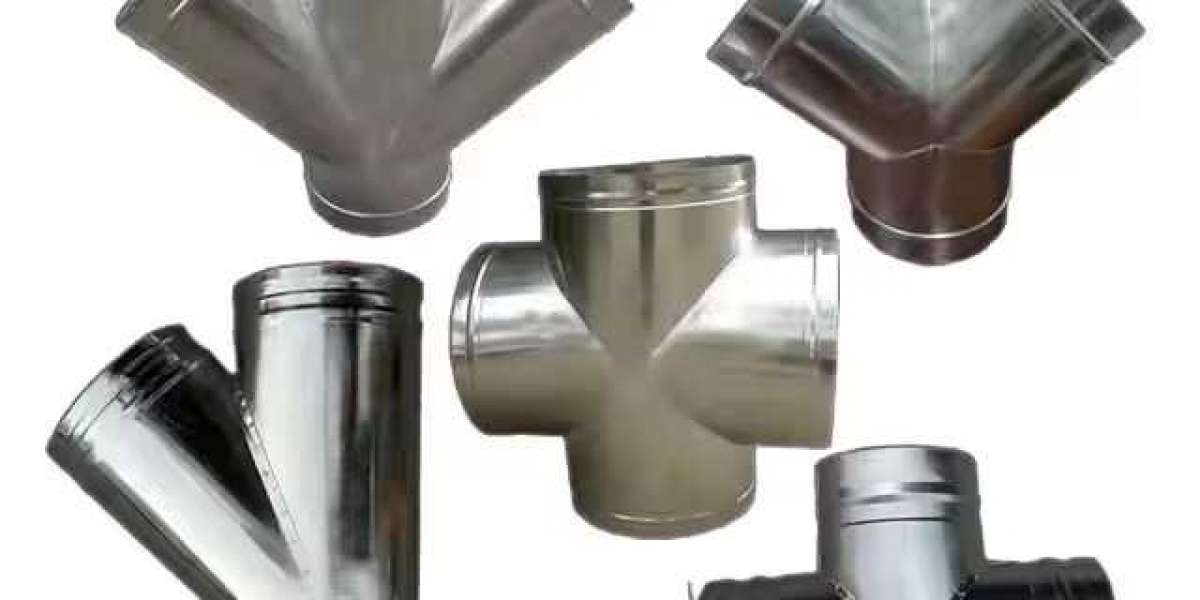Selecting the right ducting supplier for your HVAC project is crucial to ensuring the success of the installation, the efficiency of the system, and the long-term satisfaction of the end-user. Given that ductwork is responsible for distributing conditioned air throughout a building, any issues with the materials, design, or installation can lead to significant problems such as energy inefficiency, poor indoor air quality, and costly repairs. Here's a breakdown of the key factors to consider when choosing a ducting supplier and how they can impact your project:
Product Quality and Material Standards:
The quality of the ducting materials is perhaps the most critical factor. A reputable supplier should offer ductwork made from high-grade materials that meet industry standards (e.g., galvanized steel, aluminum, or pre-insulated panels). Quality materials ensure durability, resistance to corrosion, and minimal air leakage. Poor-quality ducts can lead to frequent repairs, system inefficiencies, and even potential health risks due to contamination of the air supply. Suppliers should also provide information on the certifications and standards their products meet, such as SMACNA (Sheet Metal and Air Conditioning Contractors’ National Association) guidelines.
Customization and Flexibility:
Every HVAC project is unique, with specific requirements based on building design, load calculations, and user needs. A good ducting supplier should offer customization options, including different sizes, shapes, and configurations of ductwork. They should also be able to fabricate components that fit seamlessly into complex or space-constrained environments. Flexibility in production allows for a more efficient installation process and ensures that the system performs optimally, with minimal air resistance and noise.
Lead Times and Delivery Capabilities:
Timely delivery of ducting materials is essential to keep your project on schedule. When selecting a supplier, inquire about their production lead times and delivery capabilities. Reliable suppliers will have the capacity to meet tight deadlines without compromising quality. They should also offer logistical support to ensure that the ductwork arrives on-site in good condition. Delays in receiving materials can stall the entire project, leading to increased labor costs and potential penalties for missed deadlines.
Technical Support and Expertise:
Working with a supplier that offers strong technical support can be a significant advantage. Look for suppliers who have knowledgeable staff that can provide guidance on product selection, design considerations, and installation best practices. This support can help prevent costly mistakes, ensure compliance with local codes, and optimize the overall system design for performance and energy efficiency. Additionally, some suppliers may offer value-added services such as CAD drawings, airflow analysis, and on-site consultations.
Reputation and References:
A supplier’s reputation within the industry is often a good indicator of their reliability and the quality of their products. Seek out references from previous clients or check online reviews to gauge the supplier’s track record. A supplier with a history of successful projects and satisfied customers is more likely to provide the level of service and product quality you need.
Cost and Value:
While cost is always a factor, it’s important to consider the value you’re getting for your money. The cheapest option is not always the best, especially if it means compromising on quality or service. A good supplier will offer competitive pricing while delivering high-quality products and support that justify the investment.
Place your online order: https://www.ductingsuppliesuk.com/shop-online
Impact on Project Success:
Choosing the right ducting supplier can make a significant difference in the success of your HVAC project. A reliable supplier ensures that you receive high-quality materials on time, which helps keep the project on schedule and within budget. Their technical support and expertise can also contribute to a more efficient design and installation, resulting in a system that performs optimally, consumes less energy, and requires minimal maintenance over its lifespan.
In conclusion, taking the time to carefully evaluate potential ducting suppliers based on these factors can help you avoid pitfalls and achieve a successful HVAC installation that meets your performance and budgetary goals.




